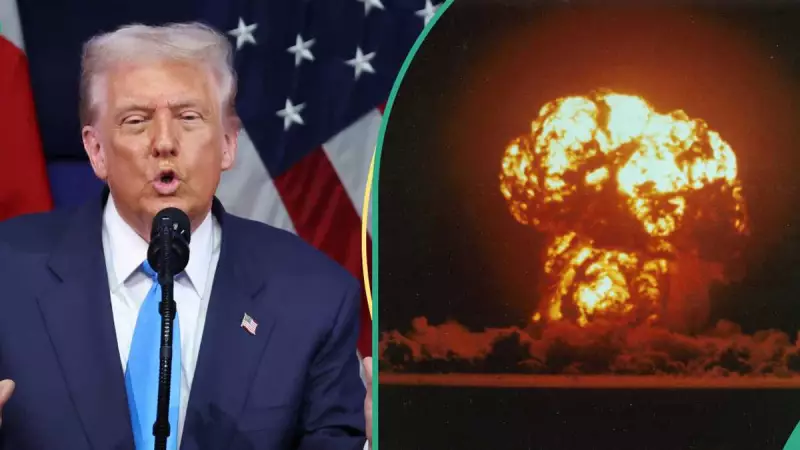
In a move that has sent shockwaves through international diplomatic circles, former President Donald Trump has allegedly given orders to restart nuclear weapons testing, effectively ending a 33-year moratorium observed by the United States.
The End of an Era: Breaking the Nuclear Testing Pause
According to exclusive reports, the Trump administration has taken decisive steps toward resuming underground nuclear tests, marking a dramatic shift in American nuclear policy that could have far-reaching implications for global security.
The United States has maintained a voluntary suspension of nuclear weapons testing since 1992, a policy upheld by both Democratic and Republican administrations through multiple presidential terms. This latest development represents a significant departure from decades of established precedent.
Strategic Implications and Global Response
Military analysts suggest this move could be aimed at strengthening the United States' negotiating position in future arms control discussions. However, critics warn that resuming nuclear testing might trigger a new arms race and undermine international non-proliferation efforts.
National security experts express concern that other nuclear powers might follow suit, potentially leading to a dangerous escalation in global tensions. The decision comes at a particularly sensitive time in international relations, with multiple geopolitical hotspots already testing diplomatic boundaries.
Historical Context and Future Projections
The Comprehensive Nuclear-Test-Ban Treaty, though signed by the United States in 1996, was never ratified by the Senate. This legal ambiguity has provided the constitutional space for such a policy reversal, despite widespread international opposition to nuclear testing.
Environmental groups and non-proliferation advocates have voiced strong objections, citing potential ecological damage and the normalization of nuclear weapons development. Meanwhile, supporters argue that modern testing is necessary to ensure the reliability and safety of the nation's nuclear arsenal.
As the international community watches closely, this decision could redefine nuclear diplomacy for years to come and potentially reshape the global strategic balance in unpredictable ways.





